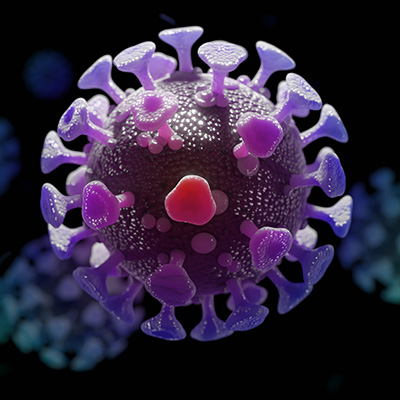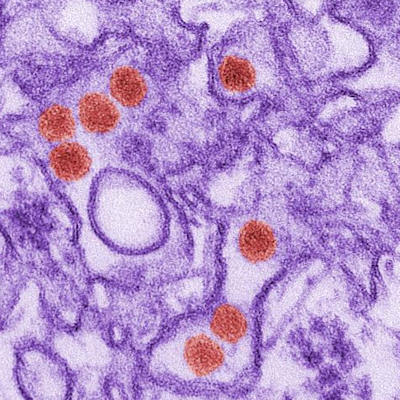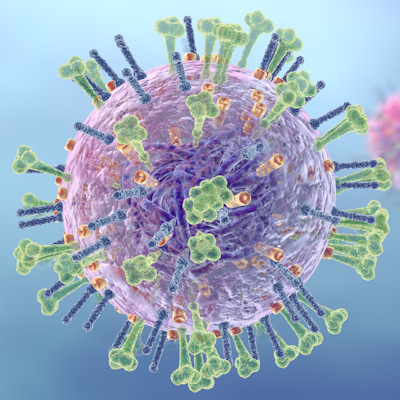 Researchers pitch cytokine-antibody complex as treatment for respiratory infections
Researchers pitch cytokine-antibody complex as treatment for respiratory infections
Researchers have combined a cytokine and an antibody to generate inflammatory responses against viruses while minimizing tissue damage. Read More
 Genomics profiling reveals how Zika infects immune cells, suggests antiviral target
Genomics profiling reveals how Zika infects immune cells, suggests antiviral target
A genomics profiling method has revealed how the Zika virus infects human dendritic cells, pointing to a potential target for therapeutic suppression of the pathogen. Read More
 Antiviral-antibody combination improves influenza outcomes in mice
Antiviral-antibody combination improves influenza outcomes in mice
Researchers at McMaster University found in a mouse study that combining a class of well-known antiviral drugs and neutralizing antibodies was more effective than either approach alone, which they contend could be used to treat seasonal influenza and help prevent the next flu pandemic. Read More
 Adjuvanted liposomal vaccine protects baby mice from RSV, looks promising for human newborns
Adjuvanted liposomal vaccine protects baby mice from RSV, looks promising for human newborns
After a more than 50-year wait, a vaccine to protect infants from respiratory syncytial virus (RSV) -- the leading global cause of death in children under age five -- could finally become a reality. A single dose of an adjuvanted liposomal vaccine formulation has induced protection against RSV infection in baby mice. Read More
 CRISPR-based study identifies lung proteins that promote, protect against SARS-CoV-2 infections
CRISPR-based study identifies lung proteins that promote, protect against SARS-CoV-2 infections
A study led by University of California, Berkeley researchers has identified specific proteins within the human body that can either promote SARS-CoV-2 infections or protect against them, a discovery they contend could lead to new antiviral therapies. Read More
Conferences
Science Briefs
Member Rewards
Earn points for contributing to market research. Redeem your points for merchandise, travel, or even to help your favorite charity.
Research Topics
Interact with an engaged, global community of your peers who come together to discuss their work and opportunities.
Connect
Tweets by @ScienceBoard






